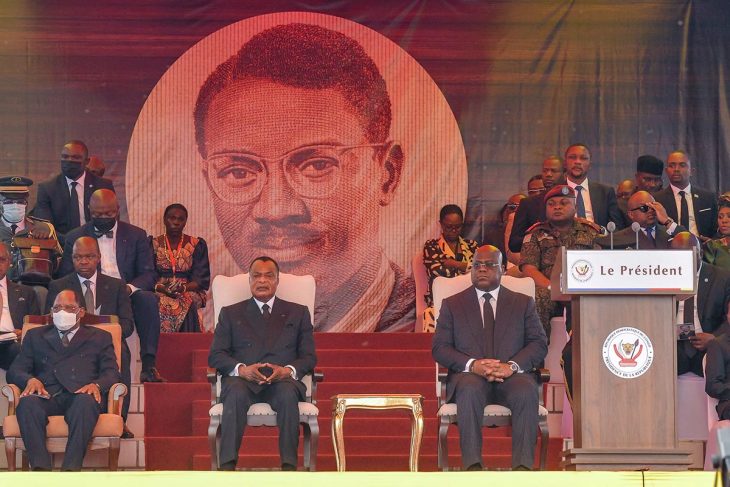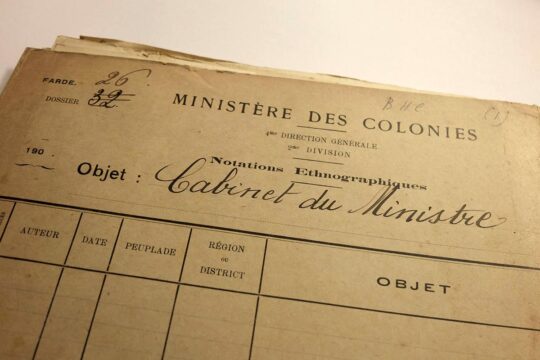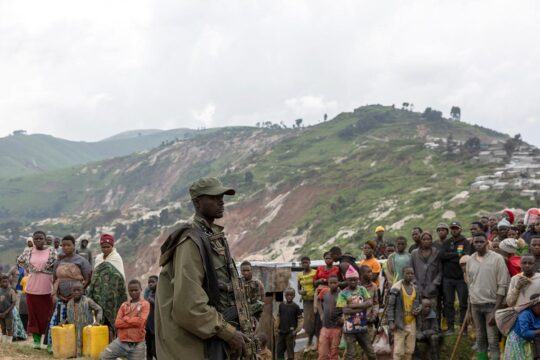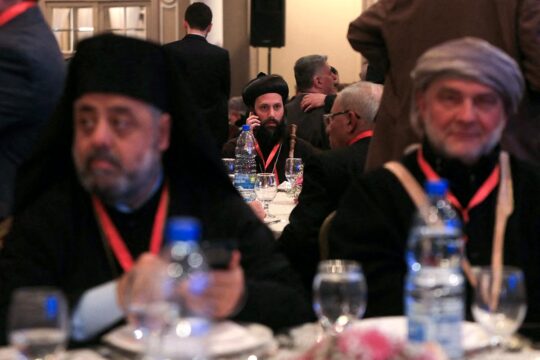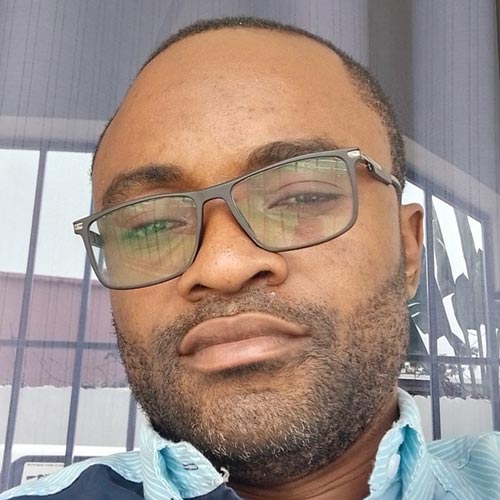Lumumba’s burial ceremony was held on Thursday June 30 in Kinshasa, under the sun of the dry season like at the time of the Democratic Republic of Congo’s independence in 1960. As first prime minister of independent Congo, Lumumba attended that ceremony. He now rests in the memorial that bears his name, on the boulevard bearing his name, in Limete commune in Kinshasa. The coffin containing his tooth, which is all that remains of the "father of independence", was placed in a mausoleum that cost the State more than 2 million dollars, a few metres from the Echangeur Tower of Limete, a 200 metre-high structure built in the 1970s and renovated for the occasion. Just above the mausoleum made of glass and concrete, built by the Chinese company SZTC, is a statue of the national hero for whom the country has just observed three days of national mourning.
The Lumumba family and several personalities, including foreign diplomats, took part in the ceremony presided over by Congolese President Félix Tshisekedi. His counterpart from neighbouring Republic of Congo, Denis Sassou-Nguesso, came to pay tribute to the man he considers an "African hero”. Everyone stood with eyes on the coffin made of Congolese wood draped in the Congolese flag, as the relic was taken in a procession to the memorial. The DRC’s president had a message for his country's first prime minister, as several generations of Congolese looked on. “Dear national hero, it was on the night of November 27, 1960, that you left Kinshasa -- then Leopoldville -- in total anonymity,” said Tshisekedi. “Here you are back, 61 years later, under the sweet sun of June 30, the sacred day of our liberation from the colonial yoke."
Return to historical roots
A few days earlier, on June 19, a Congo Airways airbus named Patrice Emery Lumumba carrying a Congolese delegation led by Prime Minister Sama Lukonde landed at Melsbroek airport in Brussels with a mission. Mission accomplished, on June 22, the day after Belgium returned the tooth, when the returning plane landed on the runway of N'Djili international airport at dawn. The tooth is all that remains of Lumumba’s body, which was dissolved in acid after his execution on January 17, 1961. "That date was until now his only tomb," lamented his youngest daughter Juliana, in tears, at the tooth restitution ceremony on June 20 in Brussels.
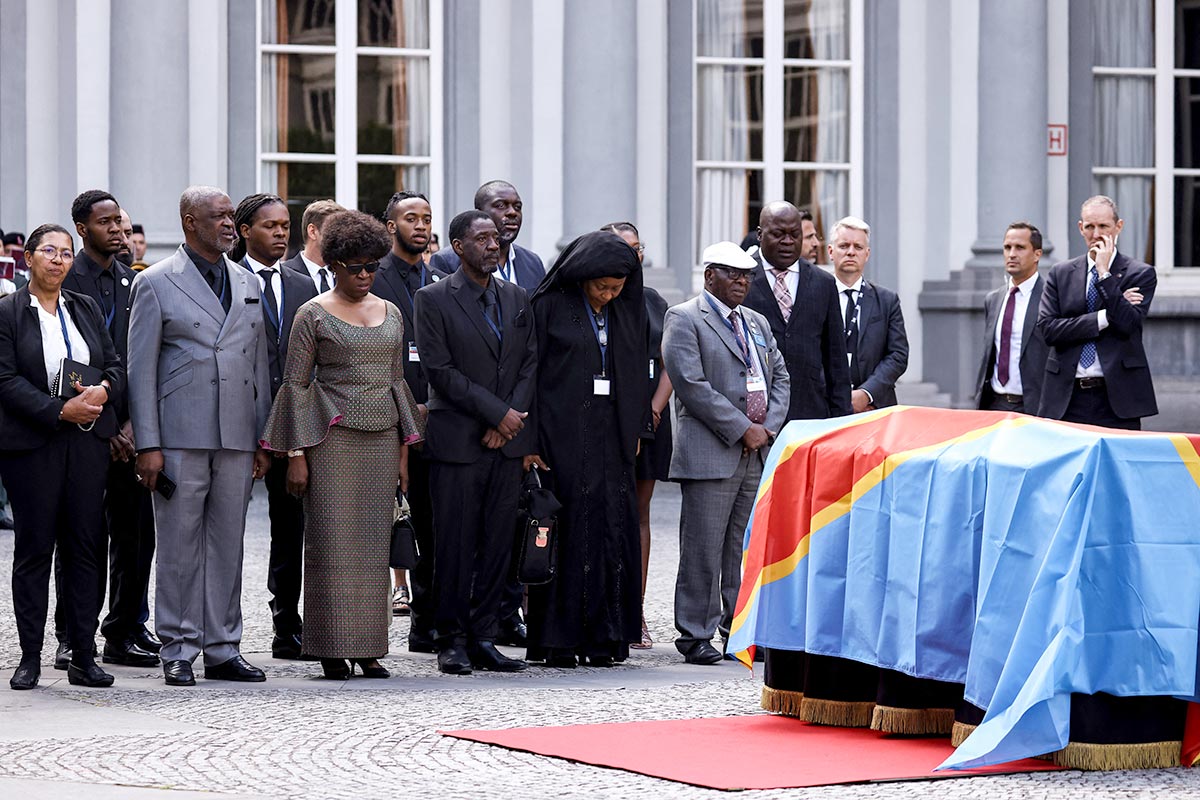
After a brief stopover in Kinshasa, Lumumba's remains returned to his historical homeland. First stop was his native village of Onalua, now Lumumba City, in the province of Sankuru. The coffin then went to Kisangani, formally known as Stanleyville, in the northeast, where his political struggle started. It was there that his party, the Congolese National Movement, was born. The penultimate stop on this tour organized by the Congolese government was Haut-Katanga and the village of Shilatembo, where he was killed, along with his companions Maurice Mpolo and Joseph Okito, about 50 kilometres from Lubumbashi.
Apology, but truth still awaited
In his funeral speech on June 30, Tshisekedi thanked the Belgian authorities "for having contributed to the re-establishment of the truth” about the assassinations. “It is only after having told the truth, after having established the responsibilities of all parties that we can together, Congolese and Belgians, begin the decisive stage of forgiveness, justice and true reconciliation,'' declared the head of State, without making any further demands in terms of reparations or restitution of cultural heritage looted during the colonial period.
On the judicial front, it is the Lumumba family that has taken the lead. In 2011, it filed a complaint in Belgium for war crimes, torture and degrading treatment, his grand-daughter Yema Lumumba tells Justice Info. Last February, she adds, the investigating judge asked the House of Representatives to provide them with the documents of the Belgian parliamentary commission of inquiry that between 2000 and 2001 looked into Lumumba's assassination. The commission concluded that Belgium had a simple moral responsibility.
At the restitution ceremony in Brussels, Alexander De Croo, the Belgian Prime Minister, said: "We have recognized the moral responsibility of the Belgian government. I repeat it again, on this official day that Belgium bids farewell to Patrice Emery Lumumba. I reiterate here, in the presence of his family, the apology of the Belgian government for the way in which it influenced the decision to end the Prime Minister’s life.”
Certainly the restitution stirs a knife in the wound. President of the National Assembly Mboso NKodia said a few days earlier that the King of Belgium should come to "bury a page of painful history between the Democratic Republic of Congo and the Kingdom of Belgium” -- a past for which King Philippe expressed "regret" in early June at the Palais du peuple (seat of parliament in Kinshasa), in the same place where Lumumba's coffin was placed for his national funeral. But few voices are being raised to demand more reparations for colonial crimes.
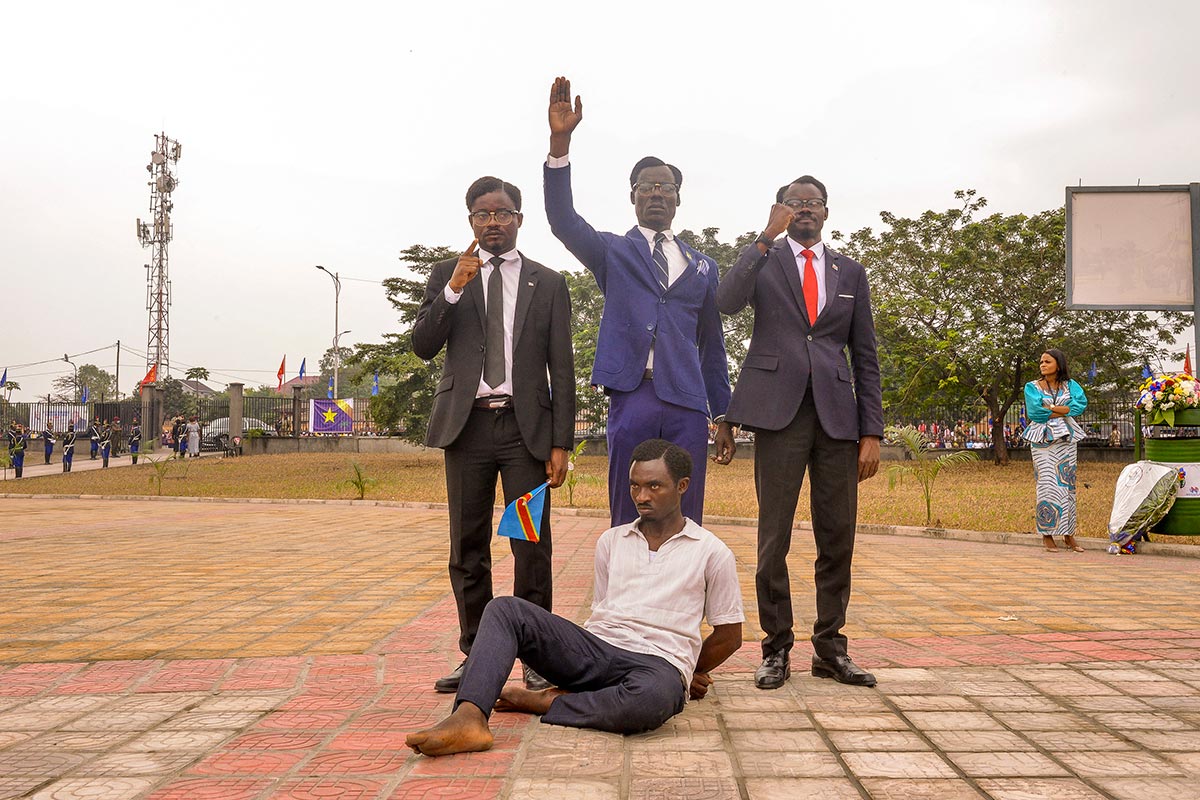
Government complacency?
The New Congolese Civil Society (NSCC), one of the country's largest civil society organizations, thinks the Belgian and Congolese governments are complacent and are encouraging impunity by settling for symbolic ceremonies. “We demand justice and reparation for Patrice Emery Lumumba," says Jonas Tshiombela, national coordinator of the NSCC. It is "regrettable" that the government is not demanding reparation but is content to have brought back the relic, he continued. "There is no apology without reparation," said Prince Epenge, spokesman for the opposition coalition Lamuka. “We are happy, although the conditions of his death have yet to be determined, as well as responsibilities and reparations. But the mourning can end, the rest will follow," said Lambert Mende, a politician hailing from Sankuru like Lumumba, during the ceremonies organized in his hometown of Onalua.
The Brussels Court of Appeal has summoned the family for a hearing on September 5, says Yema Lumumba, when it will be known if they have access to the minutes of closed hearings of the Belgian parliamentary commission on Lumumba's assassination. His eldest son, François, is confident: "There are documents that have been in Parliament for years, and our lawyers would like to consult them,” he says. “Up to now, they have not received authorization, but I think by then, they will have it."


